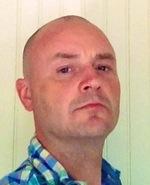
Research Interests:
- Early Modern Philosophy
- Action Theory
Ancient Philosophy Ethics Philosophy of Religion Medieval Philosophy Buddhist Philosophy
Education:
University of California, Santa Barbara, Ph.D. degree candidate, Philosophy, expected 2021
University of California, Santa Barbara, M.A., Philosophy, 2018
Salisbury University, B.A., Philosophy/English (double major), summa cum laude, 2014
Research:
Dissertation: “Berkeleyan Mereology: Acts, Agents, and Objects”
Committee: Thomas Holden (Chair), Voula Tsouna, Kevin Falvey
Abstract: George Berkeley advocated an extreme form of idealism. That is, Berkeley suggested that the totality of what exists is mind-dependent or, put another way, that nothing exists that does not exist in a mind. In my dissertation, I respond to a perennial objection to Berkeley’s case for idealism: the objection that his case rests on conflating the acts of perceiving sensible objects with the objects perceived. The charge here is that, in conflating the two, the derived notion that perceived objects are mind-dependent rests on fallacious reasoning. In defending Berkeley against this objection, I contend that the unity of acts and objects is a central plank in his case for idealism rather than the result of muddled reasoning. In mounting my defense, I provide novel interpretations of both Berkeley’s theory of perception and his theory of causation.
Office Hours: By appointment